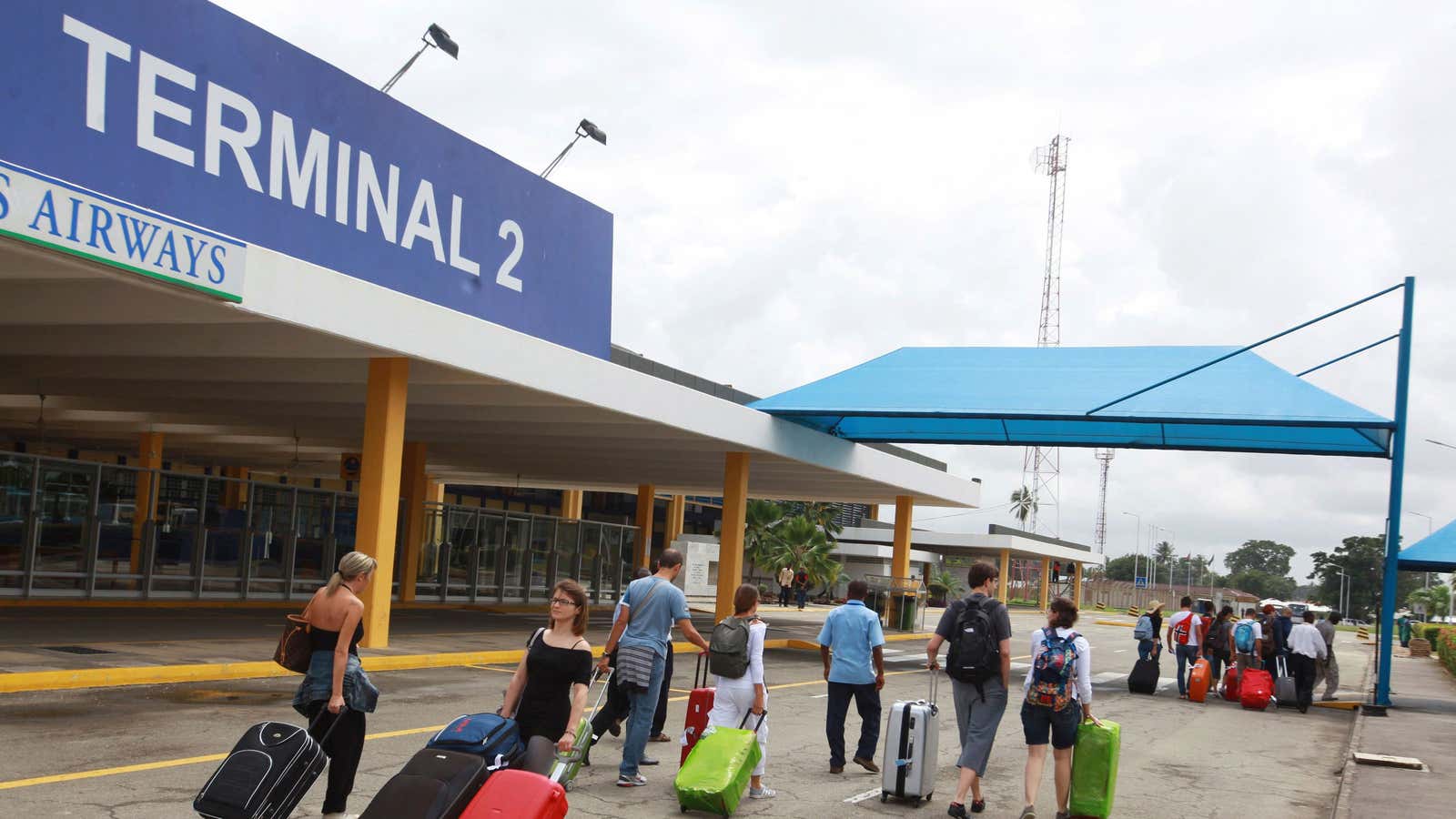Kenya is toughening its stance against foreign workers, moving to tighten the issuance of work permits and digitizing the records of thousands of expatriates.
The government has issued a 60-day ultimatum to all foreign workers to regularize their documents or risk being deported. The ministry of interior has also begun a registration and verification exercise aimed at creating a single digital record that could help in annual immigration audits that would identify undocumented workers. As part of the new processing, foreigners will be expected to submit their original work permit, official endorsement on a passport, a copy of their alien card, an official payment receipt besides their tax registration details.
Cabinet secretary for interior Fred Matiang’i said those who failed to update their details “will be jailed.”
As an economically dominant and stable country in East Africa, Kenya is a popular destination for aid workers, volunteers, and non-governmental organizations, with expats from North America, UK and Europe working in fields including human rights, media, maternal health, and conservation.
The government says the latest move is part of a campaign to secure the interest of Kenyan workers and to ensure foreigners aren’t taking up jobs that citizens can already do. Matiang’i said there were 34,000 registered foreign workers issued with permits even though there were thousands of others who weren’t registered. Yet enforcing some of these tough procedures will be tricky given that citizens of countries with powerful passports can easily travel to Kenya, stay and do business for the duration of their visas.
The new crackdown follows criticism from regulators two years ago who noted the international NGO community was not hiring Kenyans, was paying foreign staff more than local employees, and was failing to transfer jobs to locals. At the time, critics noted the clampdown against NGOs and civil society echoed a repressive past when the government muzzled dissent and free expression.
On its end, the government has recently faced criticism for hiring 100 Cuban doctors, giving them better salaries than Kenyan medics, even while sidelining the plight of local medical professionals and health sector.
Across East Africa, Kenya is hardly the only nation trying to restrict the employment of foreign workers. In Tanzania, president John Magufuli’s government has cracked down on companies recruiting foreigners, including Chinese nationals, without adhering to stipulated labor procedures. Kenya’s neighbor, Somalia deported Kenyan workers in 2015 for snapping up skilled labor opportunities even as other foreign workers flood the country which is experiencing a post-civil war boom.
